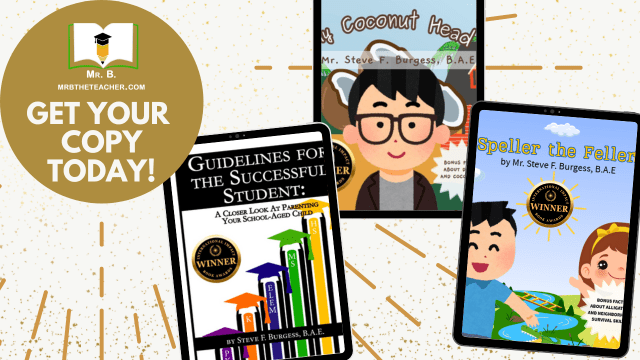
In recent years, I have seen an increasing trend in students taking huge vacation trips with family, relatives, and friends during the school year. I have no issue with students going on vacation and with going on huge vacation trips with family, relatives, and friends, but I am not in favor of them taking these huge trips during the school year.
What is a huge vacation trip?
A huge vacation trip, to me, stimulates students’ minds and everyday life experiences such as cruises, Disney World, cross-country, and any other long excursions which a lot of student families typically do during the 9-week summer break every year.
The Problem
Students missing school to go on huge vacation trips during the school year can have a measurable negative impact on their academic performance, and this concern is supported by educational research and data. Here’s a breakdown of why it’s problematic and the research-based evidence that supports it:
📉 Why It’s Problematic:

- Loss of Instructional Time:
- Core skills, especially in math and reading, are built progressively. Missing lessons create gaps that are hard to fill.
- Teachers must keep pace with curriculum standards, so reteaching missed material is often limited.
- Disruption of Routine & Structure:
- Schools provide consistency and structured learning. Long absences disrupt routines and can affect student behavior and focus.
- Falling Behind in Group Projects & Assessments:
- Students may miss collaborative learning, important assessments, and deadlines.
- Stress in Catching Up:
- Returning students often face a pile of missed work, leading to anxiety and decreased motivation.
- Negative Effects on Peers & Teachers:
- Teachers may be asked to provide separate assignments or re-teach content.
- Group projects can suffer if a student is absent for an extended time.
Taking long vacation trips during the school year can significantly impact students’ brains, sleep patterns, and overall learning. Here’s a breakdown of how:
🧠 Cognitive & Academic Impact

- Interrupted Learning:
- Students miss key instruction, practice, and scaffolding.
- Gaps in learning can form, especially in cumulative subjects like math or reading comprehension.
- Cognitive Overload Upon Return:
- When students come back, they often try to “catch up” fast. This can lead to cognitive overload and frustration, reducing retention.
- Loss of Routine:
- Schools provide structured learning. A break from that structure can cause regression in focus, study habits, and organizational skills.
💤 Sleep Pattern Disruptions

- Time Zone Changes:
- Traveling across time zones disrupts the circadian rhythm. Students may have trouble adjusting back to a normal sleep-wake cycle, leading to:
- Daytime sleepiness
- Mood swings
- Lack of focus and slower processing speed
- Traveling across time zones disrupts the circadian rhythm. Students may have trouble adjusting back to a normal sleep-wake cycle, leading to:
- Late Nights & Irregular Sleep:
- Vacations often involve late nights and less consistent sleep schedules. When students return, they may experience:
- Difficulty waking up
- Decreased REM sleep (important for memory and learning)
- Poor sleep hygiene
- Vacations often involve late nights and less consistent sleep schedules. When students return, they may experience:
📉 Emotional and Behavioral Effects

- Re-entry Anxiety:
- Missing peer interactions and falling behind can cause social anxiety or stress.
- Motivation Dip:
- The shift from fun, unstructured vacation time to academic demands can result in reduced motivation or engagement.
📚 Educational Research & Evidence:
1. Chronic Absenteeism Correlates with Lower Achievement:

Report: Schools Won’t Recover from COVID Absenteeism Crisis Until at Least 2030 – The 74
- U.S. Department of Education (2016):
Students chronically absent (missing 10% or more of the school year) score lower in reading and math assessments.
- Vacation absences can contribute to this “chronic absenteeism” status.
2. “Everyday Matters” Reports (Attendance Works, 2014):
- Early grades: Absences correlate with weaker reading and math scores by third grade.
- Middle & high school: Poor attendance is a key predictor of dropping out.
3. Johns Hopkins University (2012) – “The Importance of Being in School”:
Missing even a few days in a row can negatively affect learning. The impact is cumulative, and achievement gaps grow wider the more days are missed.
4. National Center for Education Statistics (NCES):
Students who miss more than 15 days of school are more likely to score below basic levels in reading and math.
5. Harvard University – “Preventing Missed Opportunities” (2016):
- States that absenteeism due to vacations and other non-health-related reasons is underreported but has similar negative effects as illness-related absences.
👨🏫 What Educators Like Me Recommend:
- Schedule vacations during official school breaks.
- If a trip is unavoidable, request assignments in advance and plan catch-up sessions.
- Keep trips short and focus on educational value when possible (e.g., historical sites, museums).
- Take those huge vacation trips during the long 9-week summer break only, giving at least 2 weeks free for students to readjust at home before the new school year begins.



Leave a Reply